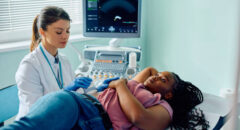
Kidney discomfort might be confused with lower back pain because the kidneys lay on the lower back muscles. Additional symptoms may help distinguish what kind of pain.
Kidney Pain
Infection and injury are possible because the kidneys filter blood waste and pollutants. If kidney stones obstruct, excess calcium, oxalate, and phosphorous might cause discomfort.
Location
Back, groin, and thigh renal discomfort may occur. Kidney discomfort is below the rib cage on both sides of the spine. Pain might sometimes seem inside. Depending on the kidney ailment, people may feel discomfort on one or both sides. Kidney pain can radiate to other areas of the body, such as:
- the sides
- abdomen
- groin
- thigh
Type and severity of pain
Small kidney stones generally pass without discomfort. Larger stones may cause severe discomfort that intensifies when they travel from the kidney to the ureters. Kidney infections may produce a constant aching.
Accompanying symptoms
Kidney diseases may produce murky or bloody urine, uncomfortable urinating, nausea, vomiting, constipation, diarrhea, fever, dizziness, and exhaustion.
Severe renal disease may cause bad breath, metallic taste, shortness of breath, swelling of the legs, ankles, or feet, confusion, irregular heartbeat, and muscle cramps.
RELATED: 9 Ways To Take Better Care of Your Kidneys
What Causes Kidney Pain
Conditions that cause kidney pain include:
- urinary tract infections (UTIs)
- kidney stones
- kidney infections
- blood clots in the kidneys
- trauma or injury to the kidneys
Back Pain
Back pain is caused by muscular, bone, or nerve issues. The cause determines the back pain's location, intensity, and symptoms. Around 80% of individuals will have lower back discomfort, according to the National Institute of Neurological Disorders and Stroke.
Location
Back pain can occur anywhere in the back. However, most people experience pain in their lower back.
Type and severity of pain
Muscle soreness is dull. Muscle discomfort may be minor to severe and vary with stretching. Nerve pain may radiate a burning or stabbing feeling. Sciatica causes back discomfort. When the sciatic nerve is pinched or compressed, it generates searing lower back and buttock agony.
Vertebral fractures and spine irregularities may cause bone discomfort. This discomfort is sudden. Movement increases moderately to severe bone pain.
Accompanying symptoms
Aches or stiffness along the spine, severe stabbing neck discomfort, difficulty standing up straight owing to pain or muscle spasms, stumbling, limb-spreading back numbness, or tingling leg weakness, bladder inability, urinary incontinence, diarrhea/constipation.
RELATED: Top 10 Most Common Causes Of Back Pain
What Causes Back Pain
Poor posture may cause backache. Back discomfort often results from muscle or ligament strain. Overstretching, heavy lifting, and improper lifting may strain backs. Other causes of back pain can include:
- poor posture
- standing or sitting for an extended period
- muscle spasms
- muscle tension
- injuries to the back, such as fractures or falls
- damaged, dislocated, or ruptured discs
- abnormal curvature of the spine
- tumors
Medical conditions that can cause back pain include:
- inflammatory diseases, such as arthritis and spondylitis
- osteoporosis
- shingles
- cancer of the spine
- infections
- cauda equina syndrome, which affects the nerves at the base of the spinal cord
- abdominal aortic aneurysm
- endometriosis
When To See A Doctor
Rest, heat and OTC painkillers may manage minor back discomfort at home. Traumatic pain requires medical attention. Kidney stones and infections need medical attention. The following symptoms need medical attention:
- persistent or severe pain that does not improve after rest
- back pain that gets worse over time
- pain, numbness, or tingling that radiates down the legs or into the arms
- difficulty walking or standing
- swelling of the legs, ankles, or feet
- unexplained weight loss
- sudden bladder or bowel problems
- fever
- irregular heartbeat
- shortness of breath
The kidneys lie below the rib cage on each side of the spine and press on the back muscles, making it difficult to distinguish back discomfort from kidney pain. Kidney discomfort may develop on either side of the back below the rib cage. UTIs, kidney stones, and blunt-force injuries cause kidney discomfort.
Most individuals have lower back discomfort. Heavy lifting, poor posture, and prolonged sitting or standing may cause back discomfort. Arthritis, osteoporosis, and infections all cause back discomfort. Recognizing kidney pain from back pain may improve diagnosis and therapy.









